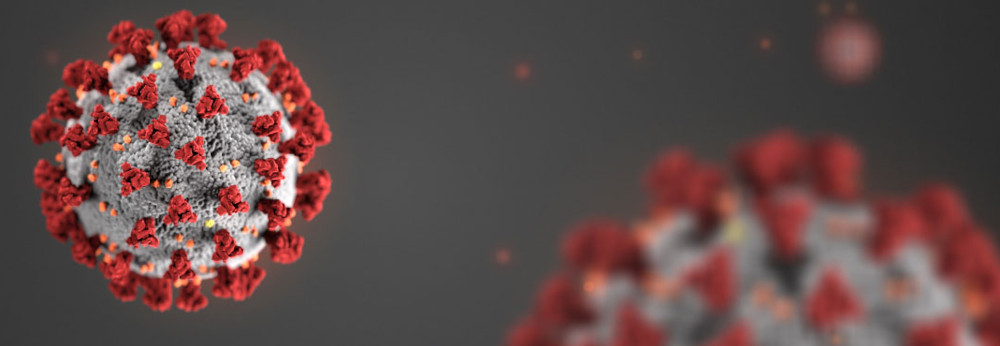
There are now many millions of cases globally of human infection with the SARS-CoV-2 virus which causes COVID-19. There is also evidence that many animal species (domestic and wild) may become infected with SARS-CoV-2 from humans infected with the virus [1]. However, the evidence indicates that animals do not play a significant role in infection of humans and that the human COVID-19 pandemic is sustained through human-human transmission [2, 3].
Although domestic animals can become naturally infected with SARS-CoV-2 from humans infected with the virus [1], most companion animals infected with SARS-CoV-2 have had no or mild disease [4, 5, 6]. They can become seriously ill, but this seems to be rare [4, 5, 6]. More information on SARS-CoV-2 and COVID-19 in different animal species can be found here.
Since there is evidence of cats and dogs becoming infected with the SARS-CoV-2 virus from humans who have COVID-19 and some (albeit low) risk to some individual animals, it is important to take some precautionary steps to protect our companion animals such as those below:
- People without symptoms of COVID-19 should continue to practice good hygiene during interactions with animals. This includes washing hands before and after such interactions and when handling animal food, waste, or supplies.
- People who are infected with SARS-CoV-2 should eliminate or limit contact with animals as well as other people. Someone else should care for any animals, including companion animals.
- If a companion animal has been exposed to SARS-CoV-2, as a precaution they should be kept in the house and not allowed to interact with other people or animals.
- If a companion animal has been exposed to SARS-CoV-2 and is sick, their veterinarian should be contacted for advice; the animal should not be taken to the veterinary clinic unless the veterinarian has advised this and can take precautions.
The human-animal bond people share with their companion animals is very important and can provide much needed support, comfort and companionship to people in these difficult times, so if possible people and their companion animals should stay together for the benefit of both.
Please note that there are still things that are unknown about this virus and the risk it poses to companion animals and humans. This information has been prepared with the best and most current information available at the time but things continue to change as the situation evolves. Our information is updated as often as possible.
Resources
There are some simple but important steps you can take to ensure the health and safety of your own pets and neighbours’ pets in the case of an emergency. We have prepared these interactive PDFs to help you prepare your emergency plan for your animals:
- Emergency Animal Authorisation Form
- Emergency Animal Preparedness Plan
- We also have “Animals Inside Cards” for you to print and fill out and put on your doors/windows to alert first responders that you have animal(s) in your home needing assistance in case of emergency.
Acknowledgement
The Pet Emergency Plan initiative is funded by the Natural Disaster Resilience Program, and has been developed by RSPCA South Australia in partnership with the Commonwealth and State Government of South Australia.
If you are facing challenges caring for your animals, please get in touch with your local RSPCA to discuss options; we are here to offer support and help if possible.
References
[1] World Organisation for Animal Health (OIE) (2022) COVID-19 – Events in Animals. Available online: https://www.oie.int/en/what-we-offer/emergency-and-resilience/covid-19/#ui-id-3 (accessed on 20.1.2022).
[2] World Organisation for Animal Health (OIE) (2020) Questions and Answers on the 2019 Coronavirus Disease (COVID-19). Available online: https://www.oie.int/scientific-expertise/specific-information-and-recommendations/questions-and-answers-on-2019novel-coronavirus/ (accessed on 20.1.2022).
[3] Bosco-Lauth AM, Hartwig AE, Porter SM et al (2020) Experimental infection of domestic dogs and cats with SARS-CoV-2: Pathogenesis, transmission, and response to reexposure in cats. Proceedings of the National Academy of Sciences of the United States of America 117: 26382–26388.
[4] Hosie MJ, Hofmann-Lehmann R, Hartmann K et al (2021) Anthropogenic infection of cats during the 2020 COVID-19 pandemic. Viruses 13: 185.
[5] Hamer SA, Pauvolid-Corrêa A, Zecca IB et al (2021) SARS-CoV-2 infections and viral isolations among serially tested cats and dogs in households with infected owners in Texas, USA. Viruses 13: 938.
